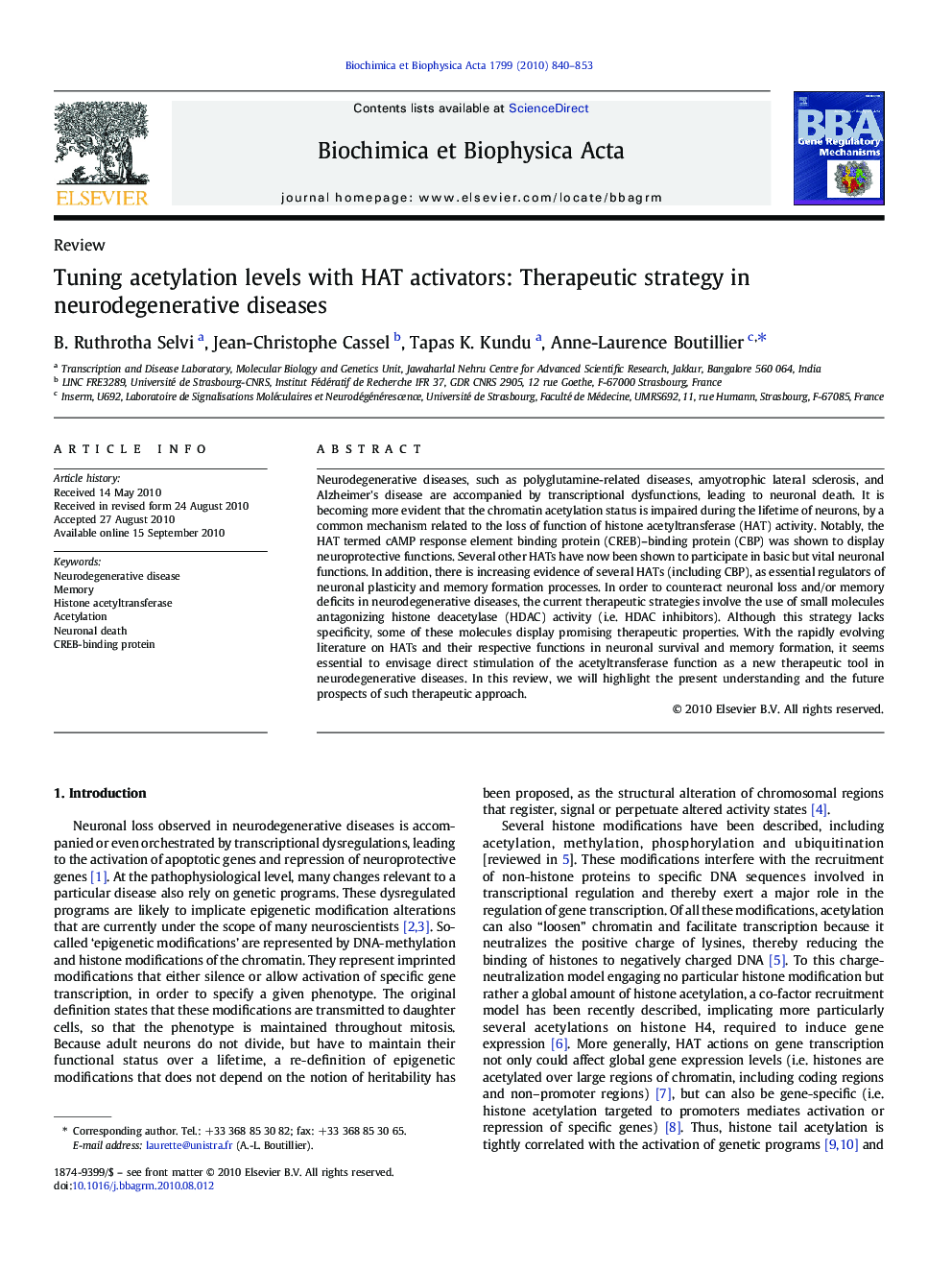| Article ID | Journal | Published Year | Pages | File Type |
|---|---|---|---|---|
| 1946742 | Biochimica et Biophysica Acta (BBA) - Gene Regulatory Mechanisms | 2010 | 14 Pages |
Neurodegenerative diseases, such as polyglutamine-related diseases, amyotrophic lateral sclerosis, and Alzheimer's disease are accompanied by transcriptional dysfunctions, leading to neuronal death. It is becoming more evident that the chromatin acetylation status is impaired during the lifetime of neurons, by a common mechanism related to the loss of function of histone acetyltransferase (HAT) activity. Notably, the HAT termed cAMP response element binding protein (CREB)–binding protein (CBP) was shown to display neuroprotective functions. Several other HATs have now been shown to participate in basic but vital neuronal functions. In addition, there is increasing evidence of several HATs (including CBP), as essential regulators of neuronal plasticity and memory formation processes. In order to counteract neuronal loss and/or memory deficits in neurodegenerative diseases, the current therapeutic strategies involve the use of small molecules antagonizing histone deacetylase (HDAC) activity (i.e. HDAC inhibitors). Although this strategy lacks specificity, some of these molecules display promising therapeutic properties. With the rapidly evolving literature on HATs and their respective functions in neuronal survival and memory formation, it seems essential to envisage direct stimulation of the acetyltransferase function as a new therapeutic tool in neurodegenerative diseases. In this review, we will highlight the present understanding and the future prospects of such therapeutic approach.
Research Highlights► HATs are essential regulators of neuronal plasticity and memory formation processes. ► Down-regulation of histone acetylation is associated with neurodegeneration and memory loss. ► HDAC inhibition strategies present therapeutic benefits but lack specificity. ► Targeting HAT activation may more accurately restore a specific chromatin marking. ► HAT activator molecules represent promising tools against neurodegenerative diseases.
